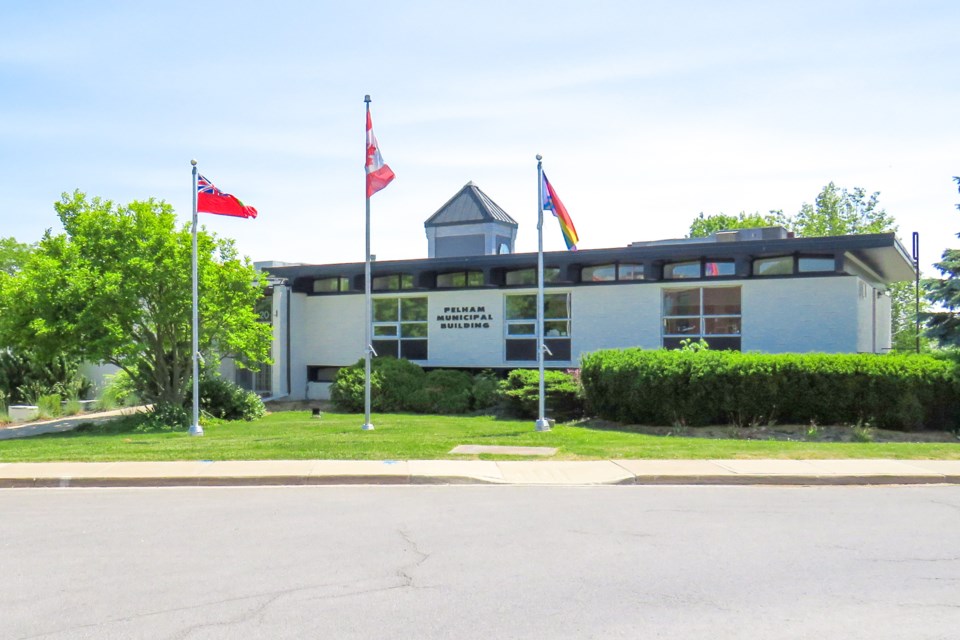Pelham Town Council heard an urgent plea at its June 21 meeting to begin preparation in attempting to combat Oak Wilt, an invasive-species-led condition that an arborist said could ultimately decimate almost a third of the community’s trees.
The presentation by certified arborist Ivan Fredette and input from Town staff appeared to work. By the end of the meeting, council had unanimously voted to establish an invasive species reserve fund, while staff reported that notification alerts had gone up on the Town of Pelham website.
Oak Wilt, a tree fungus which has severely impacted Michigan and has been present in the United States for decades, was recently discovered on this side of the border in Niagara Falls. Fredette said the fungus is hosted by sap beetles, but often transmitted through deadwood transportation.
While Fredette said the fungus is slow-moving like Dutch Elm Disease, the worst-case long-term scenario is the gradual death of many of the area’s oak trees — which he said makes up 30 percent of Niagara Region’s foliage. He added that red oaks are most susceptible to the deadly fungus.
“It’s a pretty scary thing to lose our canopy,” Deputy Mayor John Wink said. “People have to know more about this.”
While any implementation of bylaws is months away at the earliest, Fredette went as far to say that the situation could require the banning of private property tree pruning between April and October, citing the movement of deadwood and firewood as a likely culprit in the spread. He said that the sap beetles do not travel in the winter months.
Fredette said that one pesticide that’s had success in combatting Oak Wilt in the U.S. is the fungicide Propicanazole. However, the substance is currently illegal in Canada under the Pest Control Products Act. He asked council to try and pressure upper levels of government to change that.
Ward 1 Councillor Kevin Ker, however, whose career expertise covers pest management, said such an undertaking is easier said than done.
“Having dealt with [the federal Pest Management Regulatory Agency] close to 45 years now … getting them to change their mind is a massive thing to do,” Ker said. “I just know it’s an agency that I call an ‘elephant that’s hard to move.’”
Mayor Marvin Junkin concurred, saying than in his experience getting certain pesticides cleared “is a very steep hill to climb.”
Given that reality, council agreed public education is the key for now.
Ward 1’s Wayne Olson asked if the horticulture specialists at the Vineland Research and Innovation Centre (VRIC) could assist in contingencies, but CAO David Cribbs reminded the group that the last council — led by the “Gang of Four” bloc of councillors Ron Kore, Lisa Haun, Marianne Stewart, and current councillor Bob Hildebrandt — voted down the Town taking up membership with the VRIC.
Fredette said the VRIC would be a “huge asset” in dealing with the problem. Wink said that while the Town shouldn’t have to be members to solicit information from the VRIC, he suggested bringing back a membership vote in the near future.
Cribbs, prefacing that, “Clearly, this is something we need to move on,” said that that Pelham’s Agricultural Advisory Committee needs to look at the issue at their August meeting with eyes on returning a staff report—including possible bylaw implications — in the fall.
In the meantime, Fredette offered to host a public webinar though his organization, Safe Tree. More information on Oak Wilt can be found at pelham.ca/en/living-here/Invasive_Species.aspx#Oak-Wilt
Growing pains
Council also heard a report from a consultant regarding the state of Pelham’s road pavement, and the results do not appear to be good. Shila Khanal of Applied Research Associates said that a dozen particular road sections in Pelham are deemed to be in “poor” condition, and added that the Town ideally would need to increase its annual road repair budget more than sevenfold from the current $1 million a year in order to maintain an optimum pavement network. Khanal said that about $103,000 in short-term maintenance is needed this year alone.
Ker unsurprisingly said that such a budget increase would be a tough sell to ratepayers.
“We all know how thrilled residents were with the property tax increase, you add another seven million dollars …[councillors] might as well get armor,” he half-joked.
The fact remains however that many roads in Pelham were not designed for the increased usage of a growing community, and Public Works Director Jason Marr said that there is the added problem that many local road surfaces are reaching the end of their intended lifespan after a large investment roughly 20 years ago.
While rural roads seem to represent the bulk of the issues, Olson suggested that road improvement be prioritized on east-west routes, per development patterns. Khanal also offered a suggestion that the City of Brampton implemented where the municipality holds developers to the required grade of pavement quality.
Odds and ends
Council approved allowing increasing Town staff credit card limits well beyond their current $300 transaction limit, which is deemed insufficient for modern business purposes. Wink asked Treasurer Teresa Quinlin-Murphy how many staff credit cards the Town has issued. When she replied 45, or about one for every two staff, Wink replied, “Wow, that’s excessive.” The Town is in the process of switching to BMO MasterCards, which are used by the provincial government and would allow the Town to participate in the Provincially Funded Organizations Consortium Agreement — which the staff report said could qualify the Town for substantial rebates.
The mayor, councillors and staff all wore orange T-shirts in observance of Indigenous Peoples Day. In a return to a tradition prior to the pandemic, the council meeting also began with a playing of O Canada, in this case via a recording from the Toronto Symphony Orchestra.
